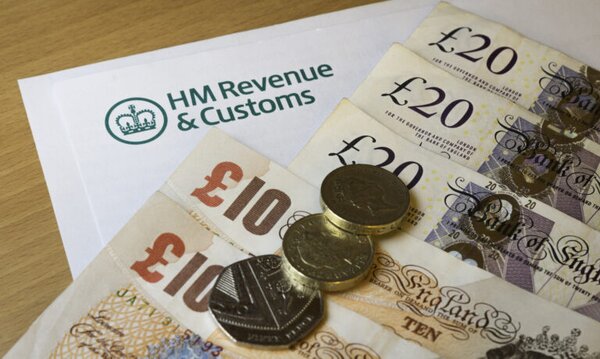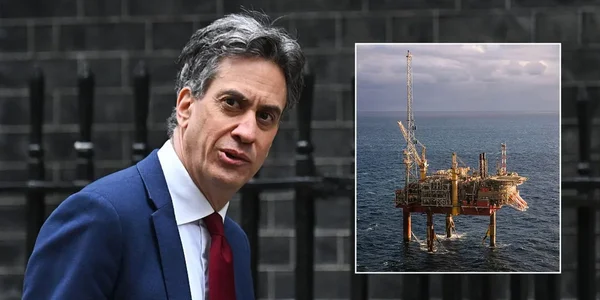Let’s Break This Down Together…
When HMRC freezes your bank account, everything suddenly stops. It can leave you confused and unsure what to do next.
This guide walks you through why freezes happen and what steps you should take immediately. It also covers your rights and how to prevent it happening again.
By the end, you’ll know exactly how to regain control and protect yourself in the future. Let’s dive in.
What Is An HMRC Bank Account Freeze?
An HMRC bank freeze (officially called Direct Recovery of Debts) happens when tax authorities instruct your bank to restrict access to your accounts. This measure is taken to recover unpaid tax and is often implemented through a court order that freezes funds in the account. Before freezing your account, HMRC must send you multiple warnings and a formal “Hold Notice” to your bank. This isn’t their first attempt to collect – it’s usually their last resort.
An HMRC account freezing order can also be used to freeze accounts suspected of involvement in tax evasion or unlawful activities, and this can apply to both bank and building society accounts. The application process for obtaining a freezing order involves HMRC or law enforcement agencies applying to a magistrates court or high court, and a district judge may be involved in reviewing the evidence.
The freeze can affect personal and business accounts. There is a minimum amount (usually £1,000) required in the account for HMRC to take this action. It might leave you with just enough money for basic living expenses – if you’re lucky.
For businesses, a freeze can halt operations almost instantly. Payroll, supplier payments, and day-to-day running costs are all affected. Company bank accounts can be frozen, and companies facing a winding up petition may have their accounts frozen by court order. A validation order from the court may be required to unfreeze a bank account frozen due to a winding up petition or other legal proceedings.
Consequences of a Frozen Account
When your bank account is frozen, the impact can be immediate and far-reaching. As an account holder, you lose access to your funds, making it difficult to pay bills, cover essential living expenses, or keep your business running. For businesses, a frozen account can halt operations overnight payroll may be missed, suppliers left unpaid, and day-to-day transactions grind to a halt.
In some cases, a company’s frozen account can lead to insolvency or even force the business to close its doors. For individuals, a frozen account can mean bounced payments, missed rent, and damage to your credit score, making it harder to secure loans or credit cards in the future.
The stress and uncertainty can be overwhelming, especially if you rely on your bank account for everyday expenses. That’s why it’s crucial for account holders to understand why the freeze happened and to seek expert advice as soon as possible. Acting quickly can help you regain access to your funds and minimise the disruption to your life or business.

What To Do Immediately If Your Account Is Frozen
Call HMRC’s Direct Recovery of Debts team on 0300 200 3835 straight away. Every day matters when your finances are locked. Gather all tax-related documents, including previous correspondence from HMRC. You’ll need these to understand exactly what you’re dealing with.
Contact your bank to confirm the freeze is from HMRC and not fraud. Banks can’t remove the freeze without HMRC’s permission, but they can clarify the situation. Ask HMRC about access to funds for essential living expenses. They’re required to ensure you can cover basic needs like food, housing, and medical care. Courts may also allow payment of legal expenses and legal fees from a frozen account, so you should ask about these exclusions if you need legal representation.
After contacting HMRC, you may be able to negotiate directly with HMRC or their legal representatives to seek a variation or modification of the freeze.
Seek professional tax advice before making any agreements. A tax advisor can often negotiate better terms than you might achieve alone. It is also recommended to consult a legal team or expert solicitors with experience in HMRC account freezing orders. Specialist lawyers or an expert team can help you navigate the process and improve your chances of regaining access to your funds.
Why HMRC Takes This Drastic Step
HMRC doesn’t freeze accounts on a whim. HMRC's primary goal is to recover unpaid taxes, and their authority to freeze accounts is part of HMRC's enforcement powers. Typically, you’ll owe at least £1,000 in tax and have ignored multiple payment requests.
The freeze might follow months or even years of non-communication. HMRC sees account freezing as a last resort when other collection methods have failed. Suspected criminal behaviour, such as money laundering or tax evasion, can trigger a freeze even without prior warnings. If HMRC believes you’re deliberately hiding assets, they might skip some warning stages.
Self-employed people and small business owners are often most vulnerable. Those who’ve fallen behind on Self Assessment payments or VAT are particularly at risk. Business owners and company directors may face personal liability if they fail to comply with HMRC's demands or if the freeze is related to criminal behaviour.
AFO Application and Investigation
The process of freezing a bank account through an Account Freezing Order (AFO) begins when law enforcement agencies, such as HMRC, suspect that an account is linked to criminal activity like money laundering or tax evasion. To obtain an AFO, the agency must apply to a magistrates court, presenting evidence and demonstrating reasonable grounds for their suspicion.
The court carefully reviews the application, and if satisfied, grants the account freezing order. Once the freezing order is in place, the account holder’s access to the funds is restricted. HMRC or the relevant agency will then launch an investigation, examining transactions, gathering evidence, and possibly interviewing those involved to trace the origin and use of the money.
During this period, the account holder may be asked to provide information or documentation to assist with the investigation. Cooperating fully and understanding your rights is essential, as it can help resolve the matter more efficiently and may improve your chances of regaining access to your account.

Freezing Orders and Their Duration
Freezing orders, including Account Freezing Orders (AFOs), are powerful tools used by law enforcement agencies like HMRC to restrict access to bank accounts suspected of being connected to criminal activity. These orders can freeze bank accounts for up to two years, preventing account holders from accessing their funds while the investigation continues.
In some cases, the duration of the freezing order can be extended if the agency can show that more time is needed to complete their inquiries.
During this period, account holders have important rights and options. You may be able to challenge the freezing order in court or negotiate a payment plan with HMRC if the freeze relates to unpaid tax. Seeking expert advice from a specialist lawyer is highly recommended they can help you understand your legal options, protect your interests, and work towards unfreezing your account as soon as possible.
Understanding Forfeiture Orders
A Forfeiture Order is a serious step that allows law enforcement agencies to permanently seize money from a bank account if the court is convinced the funds are recoverable property meaning they were obtained through unlawful conduct or intended for criminal activity. To secure a forfeiture order, the agency must apply to the court and present clear evidence supporting their claim.
If the court grants the forfeiture order, the account holder loses all rights to the money, and the funds are transferred to the agency. However, account holders are not powerless. You have the right to challenge a forfeiture order, present your own evidence, and argue your case in court. Having a specialist lawyer on your side can make a significant difference, helping you protect your assets and navigate the legal process with confidence.
How To Negotiate With HMRC
Contact HMRC with a clear proposal for resolving your tax debt. A Time To Pay arrangement showing how you’ll clear the debt in instalments often works best. Be honest about your financial situation. HMRC can check your financial records, so transparency is crucial for building trust.
If you dispute the tax assessment, gather evidence quickly. You’ll need solid proof to challenge HMRC’s figures. Consider offering an immediate partial payment to show good faith. This might persuade HMRC to unfreeze part of your account while you arrange to pay the rest.
Document everything. Keep records of all calls, emails, and letters with HMRC. Note the name of anyone you speak with and what was agreed. For the best outcome, consider seeking assistance from professionals with a proven track record in negotiating with HMRC and resolving account freezes.

Challenging an Account Freezing Order
If your bank account has been frozen under an Account Freezing Order (AFO), you have the right to challenge it. Account holders can apply to the magistrates court to have the freezing order discharged or varied. This process requires expert advice and a clear legal strategy. A specialist lawyer will review the details of your case, gather supporting evidence, and prepare a strong argument to present to the court.
The court will consider whether the freezing order is still necessary or if your rights as an account holder have been unfairly restricted. If the court is persuaded, it may lift or modify the order, restoring your access to the funds. Acting quickly is essential prompt action and professional support can help protect your interests and resolve the situation as efficiently as possible.
Your Legal Rights During A Bank Freeze
HMRC must give you 30 days’ notice before freezing your account. If you didn’t receive this, you may have grounds for immediate appeal.
They must leave you with enough money for reasonable living expenses. The exact amount varies based on your circumstances.
You have the right to appeal through HMRC’s formal review process. If necessary, you can take your case to the tax tribunal. Exposing flaws in HMRC's evidence or procedures such as errors in documentation or improper handling of your case can strengthen your appeal and increase your chances of having the freeze lifted.
Vulnerable customers have additional protections. If you’re dealing with serious illness or disability, HMRC should consider this in their approach.
I once helped a client who discovered her account was frozen whilst trying to pay for her weekly shop. The embarrassment at the checkout was nothing compared to her panic about paying rent that week.

Preventing Future Account Freezes
Stay on top of your tax obligations. File returns on time, even if you can't pay the full amount immediately. Contact HMRC early if you're struggling to pay. They're more likely to offer manageable payment terms if you approach them before they chase you.
Keep your contact details updated with HMRC. Many freezes happen because warning letters never reached the taxpayer.
Consider using a tax management app to track deadlines and obligations. Automated reminders can prevent missed payments that lead to enforcement action.
Set up direct debits for regular tax payments where possible. This reduces the risk of forgetting payments and accumulating debt.
Final Thoughts
An HMRC bank freeze is serious but solvable. Quick, professional communication with HMRC is your best route to resolving the situation.
Don't ignore the problem, it won't go away. Delays usually make things worse, while prompt action can limit the damage.
HMRC has extensive powers but is generally willing to negotiate reasonable payment plans. Their primary goal is to recover the tax, not to punish you.
Professional tax advice can make a huge difference to the outcome. It often pays for itself by securing better terms or identifying valid grounds for appeal.
Remember that prevention is always better than cure. Staying tax-compliant might seem tedious, but it's far less stressful than dealing with frozen accounts.











